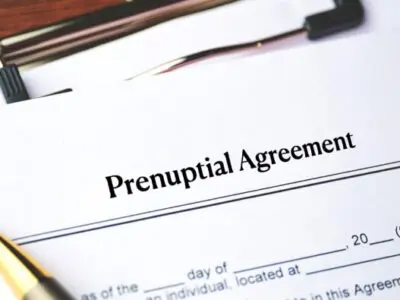
The legal word for the financial support given by one single partner to another after a relationship end is “alimony.” Prominent divorce attorney Marvin Mitchelson initially proposed the idea of palimony in the late 1970s. In this article, we will be discussing what palimony is and the terms of providing palimony in Florida.
What is Palimony in Florida?

Palimony: What is it? Financial support between unmarried partners following a split is referred to by this phrase. It is comparable to alimony for nonmarried partners in a divorce.
After a non-marital supportive partnership ends, one person can continue to support another, a phenomenon known as palimony. You cannot file a support lawsuit in the state of Florida’s family courts after a non-marital relationship has terminated since the state does not have palimony.
Is it possible for Unmarried Couples to receive Palimony Recognition in the State of Florida?

Palimony claims or rights are not recognized in the state of Florida. Moreover, common law marriage is also not recognized in Florida.
Similarly, domestic partnerships are not recognized in Florida. The state has recognized same-sex marriage as of 2015.
As such, Florida courts are likely to dismiss a palimony complaint. There is one exception, though.
Let’s say that your common-law union was formed in a state that permits such unions. Then, Florida courts may hear your case for palimony.
Rights of Unmarried Couples in Florida: Palimony in Florida
In marriage, both spouses have unique legal rights and benefits. For example, in a divorce case, spouses are entitled to spousal maintenance and equitable distribution of marital property. However, single couples do not have the same rights. Unmarried couples can work to protect their rights upon separation from their married spouse, even if they cannot pursue palimony in Florida.
The parties must agree to financial support in the event of separation as per the prenuptial agreement. The agreement can also specify how the jointly owned property will be divided in the event that one or both parties terminate the relationship. A non-nuptial agreement is considered a contract as long as it meets Florida legal standards. Consequently, partnerships are viewed as commercial rather than recognized as household relationships. Because of this paradox, courts may still be able to enforce a contract under contract law, although, under family law, it is considered “fair,” and whatever terms the parties choose is their decision.
Therefore, it is always advisable to seek legal advice before signing a palimony agreement with your spouse. Unless the court orders otherwise, unmarried parents have the right to be involved in a child’s life. Also, Florida’s child support law requires parents to provide financial support for their children. As a result, unmarried couples have the same rights and responsibilities in their families. But what if the father and mother failed to prove paternity at birth? In that case, if the other parent contests paternity, the unmarried parent may need to bring a paternity challenge to determine parental status
Palimony in Florida: Palimony vs. Alimony
“Palimony” is similar to alimony but is for partners who are not married. However, “alimony” is the legal term for payments made by the higher-earning spouse to the lower-earning spouse after a divorce, while “palimony” is a non-legal term for the same concept, but between non-married partners who separate.
Is Palimony recognizable in Florida?

The term “patrimony” refers to the unofficial financial support that one person gives to another after a long-term partnership ends, despite the fact that it is not defined legally in Florida.
Palimony, a play on the term “alimony,” is used to describe a type of financial arrangement that many married couples share but which is specifically intended for single people only. Legal recognition of “common law” marriages is not accorded by Jacksonville courts. By filing a lawsuit, it could still be feasible to obtain palimony payments.
Even if you and your spouse were never formally married, our family law office is committed to assisting individuals in resolving the legal challenges related to family, marriage, and relationship concerns.
Who qualifies for Palimony in Florida?
Similar to alimony payments, in a divorce, palimony claims are a term used to describe the support one partner provides to the other after the end of a long-term non-marital partnership. The purpose of palimony is to safeguard the partner from facing financial instability once their partnership comes to an end.
It’s important to note that unlike in divorce cases, unmarried partners are not legally obligated to pay spousal support. This could be advantageous if you have been the earner in your partnership. However, if you have relied on your partner financially, it’s crucial to take action as you may find yourself in a financial position.
In certain circumstances, palimony can offer you the funds to maintain your current standard of living. Additionally, it can assist you in transitioning into life by providing the financial support needed to regain stability.
Understanding that palimony claims can be complex and require an expert family lawyer is essential. If you believe you may be eligible for palimony, seeking guidance from an attorney is crucial. They will assist you in navigating the system and comprehending your rights and available options.
How Do You Get Palimony in Florida?

Palimony is a term that refers to economic support or belongings division between unmarried couples when their relationship ends. Unlike alimony, which is usually associated with divorce, palimony is relevant to couples who in no way married but lived together in a dedicated courting. In Florida, the felony landscape for palimony is complicated, and it is important to apprehend the unique situations and legal necessities. Here’s a breakdown of ways you could pursue palimony in Florida:
Establishing a Committed Relationship:
To qualify for palimony in Florida, you need to illustrate that you have been in a devoted, long-time period and collectively supportive dating. This may also contain offering evidence of cohabitation, joint economic obligations, and emotional interdependence. It’s critical to establish the nature and length of your dating.
Express or Implied Agreement:
Palimony claims frequently hinge on the presence of an explicit or implied settlement among partners regarding economic assistance or the sharing of assets. This agreement can be verbal, written, or inferred from the occasions and behavior of the events involved. It is critical to accumulate proof that helps the lifestyles of such a settlement.
Contributions to the Relationship:
To toughen your palimony, declare and spotlight the contributions you made to the relationship, each monetary and non-economic. This can include contributions to household prices, joint purchases, career sacrifices made for the connection, or some other shape of help that contributed to the well-being of the partnership.
Consulting an Attorney:
Seeking prison advice is important while pursuing palimony in Florida. Consult with a skilled circle of relative’s regulation lawyer who can investigate the specifics of your case and guide you through the legal procedure. A lawyer permits you to apprehend your rights, compare the energy of your declaration, and offer guidance on the vital steps to take.
Factors Considered in Palimony Cases

Palimony cases contain legal disputes over economic guidance among single couples who’ve lived collectively in a committed court. Unlike alimony, which is usually associated with divorce, palimony applies to couples who have cohabitated. Without formalizing their relationship via marriage. These instances are complicated and regularly contain problematic felony considerations. In this text, we are able to discover the factors which can be considered in palimony cases.
Express or Implied Agreement:
One of the number one factors in palimony instances is the life of a settlement among the parties, both specific or implied. An express settlement may additionally involve a written settlement outlining the monetary preparations among the couple, whilst an implied settlement can be inferred from the behavior and actions of the parties for the duration of their cohabitation. Courts will carefully observe the intentions and expectancies of the people involved to decide if mutual information exists regarding economic support.
Length and Nature of the Relationship:
The period and nature of the relationship play a crucial role in instances of palimony. Generally, longer-term relationships can be more likely to bring about palimony claims. Economic interdependence and shared duties have a tendency to grow over the years. Courts also do not forget whether or not the relationship resembled a wedding in phrases of exclusivity, mutual aid, and shared responsibilities.
Financial Contributions:
Palimony instances frequently involve an evaluation of the economic contributions made with the aid of every party at some stage in the connection. This includes both financial contributions, inclusive of shared charges and joint economic ventures, and non-monetary contributions. Such as homemaking or childcare responsibilities. Courts will examine the general financial image to determine if one party has a valid declaration for aid primarily based on their contributions to the connection.
Standard of Living During the Relationship:
The popularity of dwelling maintained with the aid of the couple all through their dating is every other essential aspect. If one celebration can reveal that they became familiar with a sure way of life due to the economic assistance supplied with the aid of their associate. They may have a stronger case for palimony. The court’s intention is to make sure that the couple can preserve a way of life much like what they skilled for the duration of the relationship.
Economic Partnership:
Courts may also determine whether or not the couple functioned as a financial partnership, sharing both the advantages and burdens of their joint efforts. If one party extensively benefited financially from the contributions of the alternative, the courts can be extra inclined to award palimony to the financially established man or woman. This evaluation often includes a detailed examination of each party’s function inside the dating and their respective financial contributions.
Ability to Support Oneself:
The financial needs and the ability of each party celebration to aid themselves independently are crucial concerns. If one party celebration is unable to maintain an inexpensive fashion of living without economic assistance from the other. The courtroom can be more willing to furnish palimony. Factors that include age, health, employment records, and earning capacity are taken into consideration in figuring out the extent of support desired.
Termination of Relationship:
The instances surrounding the termination of the relationship can impact palimony instances. If the separation became mutual and both events were aware of the consequences concerning economic support, it could affect the court docket’s choice. However, if one party all at once ends the connection without good enough words or attention for the financial desires of the alternative. It could give a boost to the palimony claim.
In the end, palimony cases contain a nuanced evaluation of various factors to determine whether economic help is warranted for a party after the end of non-marital cohabitation. Court’s goal is to acquire impartiality and equity, thinking about the particular circumstances of each case. Individuals concerned in palimony instances have to search for family law lawyer. To navigate the complexities and present a compelling case primarily based on the elements mentioned above.
Final Words
Palimony instances involve a complex and nuanced assessment of various factors to determine. Whether or not monetary help is warranted for one party after the quilt of non-marital cohabitation. The court docket’s goal is to reap impartiality and equity, contemplating the precise occasions of each case. This consists of considering elements consisting of the duration of the connection, the diploma of monetary dependence, and the contributions made with the aid to the party to the relationship.
In addition, the court may also keep in mind any agreements or understandings between the events regarding the economic guide. Furthermore, the court might also take into account the usual living established throughout. During the connection and the financial resources available for each party.
Given the complexity of palimony instances. Individuals involved in such instances are strongly cautioned to try to find the help of a competent family law lawyer. A knowledgeable lawyer can assist in navigating the legal complexities. And gift a compelling case based on the elements stated above. Ultimately, the goal is to obtain fair and just final results for all events involved.
Read Also:


